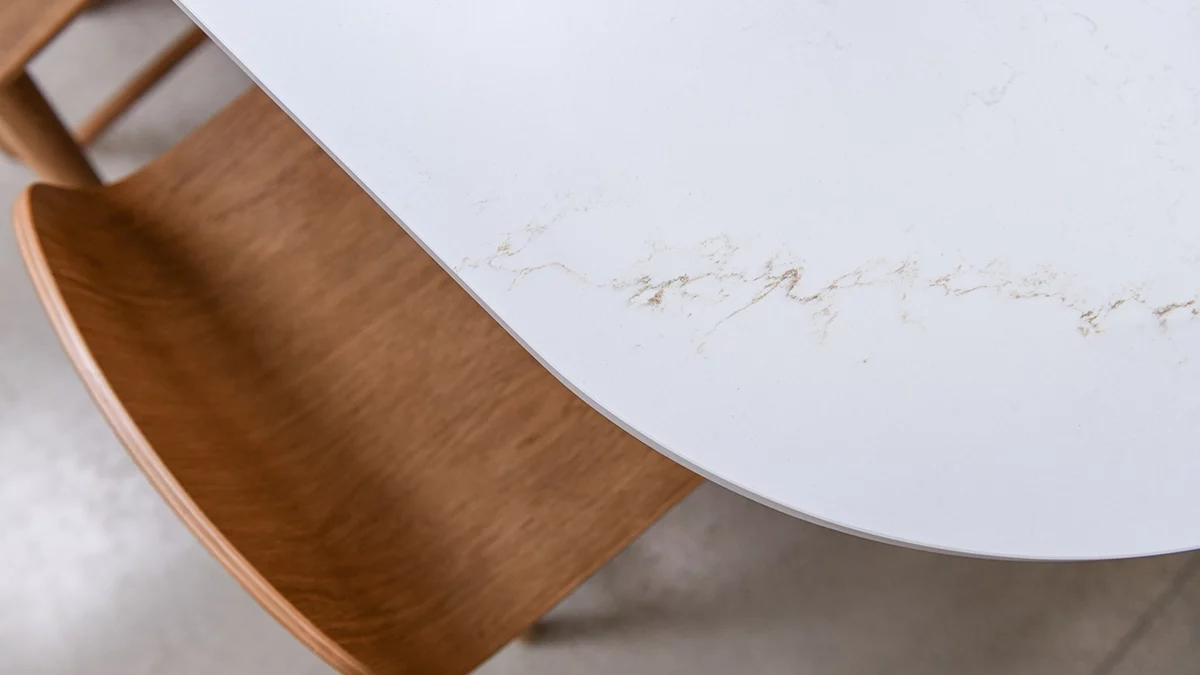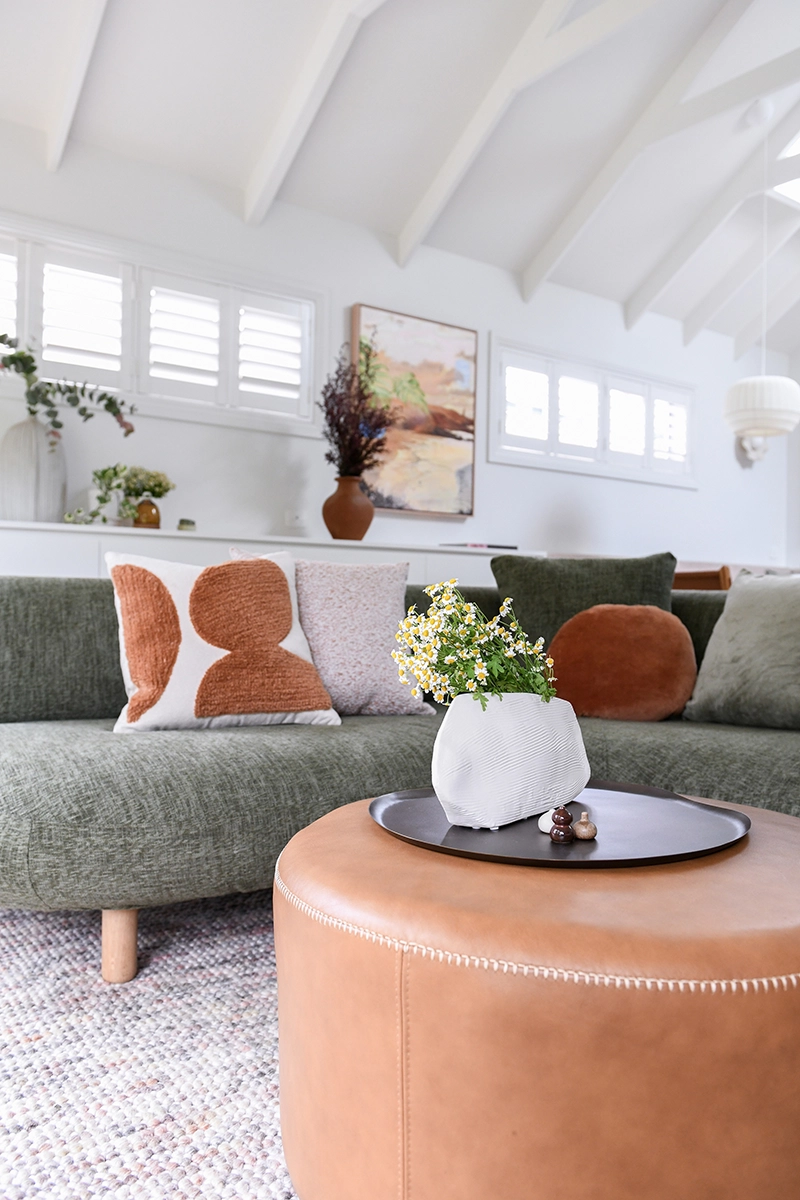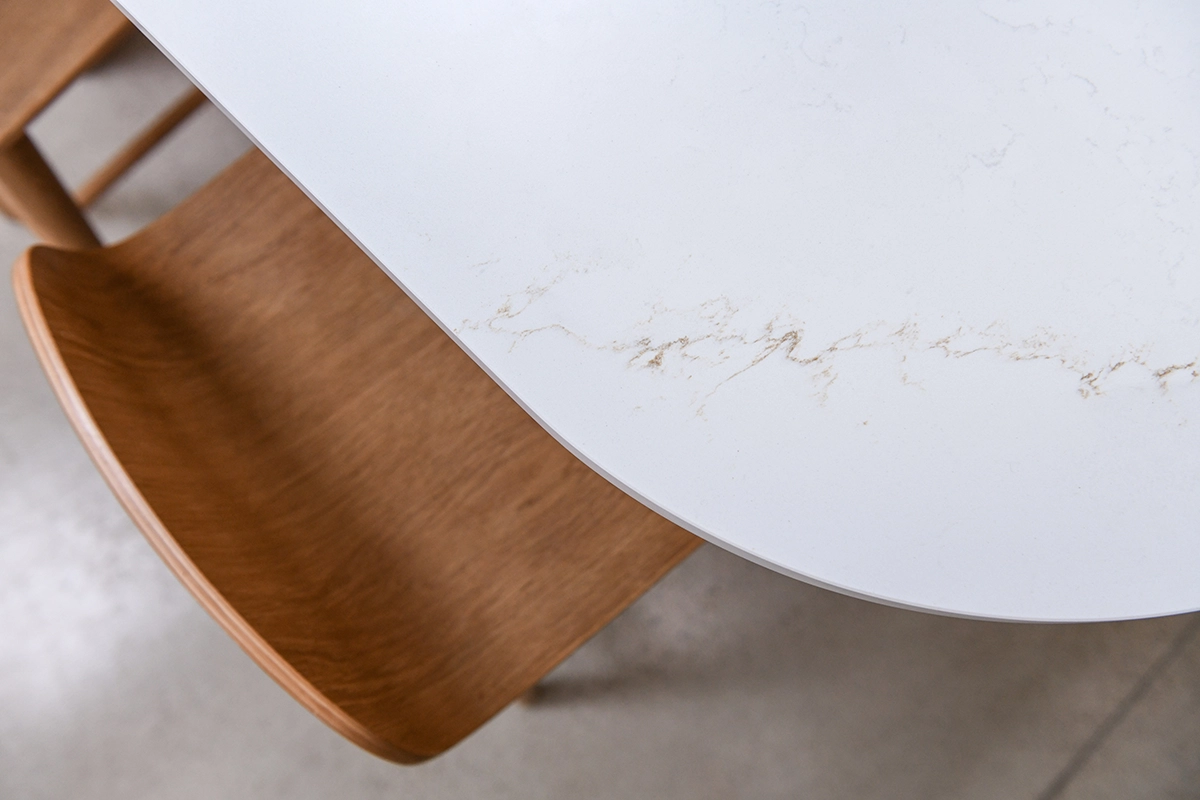
As designers, we all dream of creating beautiful, functional spaces. But with that dream comes a responsibility: the ethical sourcing of materials.
Gone are the days of simply prioritizing aesthetics. Today, we must consider the environmental impact of our choices. Opting for cheap, mass-produced materials might seem appealing, but it often hides a dark side – unsustainable practices, harmful chemicals, and exploitation of resources.

Products: custom sofa from E9design, cushions from Ivy Lane,
decor from Mecque and Ivy Lane
So, how do we navigate this design dilemma? Here's my approach:
- Transparency is key: I believe in open communication with clients. Discussing the provenance and environmental impact of materials empowers them to make informed decisions.
- Embrace local: Sourcing from local artisans and craftspeople not only reduces the carbon footprint of transportation but also supports our community and celebrates unique aesthetics.
- Sustainable alternatives: Innovative materials like bamboo, recycled plastic, and reclaimed wood offer beautiful and durable options without sacrificing the planet.
- Quality over quantity: Investing in well-made pieces built to last reduces waste and the need for frequent replacements.

Product: Silestone kitchen benchtop, a hybrid mix of minerals and recycled materials to create a high performing durable surface.
By prioritizing honesty in material choices, we can create spaces that are not only stylish but also speak to our values of responsibility and sustainability. It's a beautiful way to design with a conscience.

